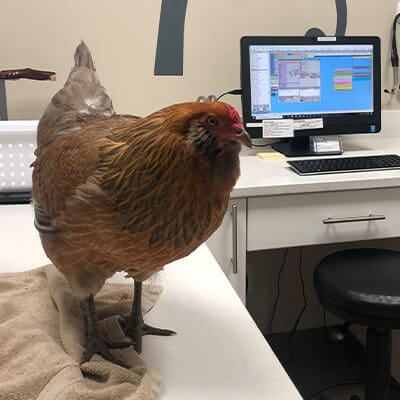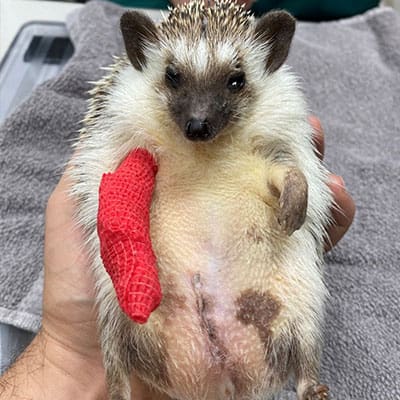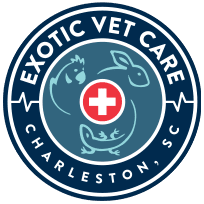A Comprehensive physical exam

Our experienced team of vets will observe the general appearance of your pet and examine most organ systems…
- The heart - listening for abnormal heart rate, heart rhythm ("skipped beats" or "extra beats"), or heart murmurs.
- The pulse - depending on the results of auscultation, your veterinarian may simultaneously listen to the chest and palpate the pulse in the wings or legs.
- The lungs or air sacs in birds - listening for evidence of increased or decreased breath sounds.
- They will evaluate the pet's posture and how your pet walks or moves.
- The eyes and ears
- The nose and face - looking for symmetry, discharges, how well your pet breathes.
- Mouth, teeth, and/or beak
- Your pet's general body condition - whether your pet has an appropriate body weight and body condition.
- Your pet’s muscle condition to check for any muscle wasting.
- The skin, haircoat, plumage, or scales
- The lymph nodes on species that have them
- The legs - looking for evidence of lameness, muscle problems, nerve problems, problems with the paws, feet or toenails, etc.
- The abdomen - feeling in the areas of the bladder, kidneys, liver, intestines, spleen, and stomach in order to assess whether these organs appear to be normal or abnormal, and whether there is any subtle evidence of discomfort.
In some cases, you may not even be aware that our vets are conducting some parts of a routine physical examination, particularly if they do not detect any abnormalities.
A Comprehensive blood panel & fecal analysis
Complete blood count or CBC
to screen for anemia, infection, inflammation and blood parasite
Blood Chemistry or Internal Body function test
for organ dysfunction like diabetes, kidney disease, liver disease and other disorders.
A Fecal analysis
to screen for harmful internal parasites, bacteria, yeast, or worms.
A Senior Pet Exam
When your pet becomes a senior patient, even though they may still be young at heart, the American Animal Hospital Association recommends that your pet sees a veterinarian every 6 months. This is another reason why we recommend semi-annual wellness visits and early disease blood screens for senior pets.
Additional wellness screening tests may include chest or abdominal radiographs (X-rays) to assess the size and appearance of their internal organs, such as the heart, lungs, kidneys, and liver, or radiographs of the skeletal system to look for degenerative changes such as “arthritis” in the bones or joints, which is usually a painful condition.
With an ultrasound examination we also can screen the body for potential diseases.
Our next generation CT scan, which is faster and safer than traditional CT scans, is many times more sensitive than radiographs and/or ultrasound since it gives us a 3-D image of what is going on internally. In most cases, we administer an intravenous contrast agent to highlight all the tissues and organs.

